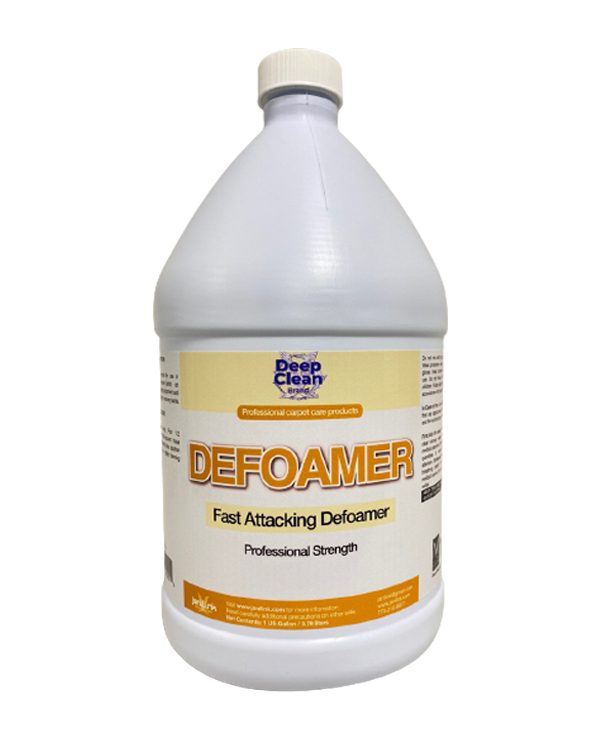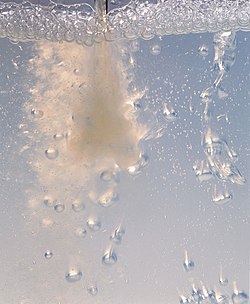Discovering the Perks of a Chemical Defoamer in Production and Production
The assimilation of chemical defoamers in manufacturing and production procedures offers a strategic advantage by attending to one of the relentless challenges in commercial procedures: foam control. As manufacturers aim to maximize processes and enhance customer complete satisfaction, the function of chemical defoamers ends up being progressively crucial.
Relevance of Foam Control
While the visibility of foam in making procedures can sometimes seem safe, reliable foam control is crucial for optimizing operational efficiency and product top quality. Foam can hinder numerous stages of production, causing ineffectiveness that might raise prices and expand handling times. In markets such as food and beverage, pharmaceuticals, and chemicals, uncontrolled foam can obstruct tools, disrupt automated systems, and ultimately cause item variances.

Carrying out reliable foam control strategies not only improves efficiency however additionally sustains governing compliance in industries where foam can result in environmental issues. By using chemical defoamers, makers can minimize these obstacles, ensuring smoother procedures and higher-quality output. Ultimately, focusing on foam control is an important aspect of manufacturing that can yield significant benefits in terms of item, security, and effectiveness reliability.
Sorts Of Chemical Defoamers
What sorts of chemical defoamers are readily available for making processes, and exactly how do they differ in application? Chemical defoamers can be classified right into three main types: silicone-based, natural, and not natural defoamers. - Chemical Defoamer

Organic defoamers, normally acquired from fatty acids or all-natural oils, work in a series of applications, including food and drink manufacturing. They are often chosen for their reduced poisoning and ecological impact, guaranteeing conformity with sector laws.

Each sort of defoamer offers distinctive objectives based on the chemical structure and the details requirements of the manufacturing procedure, allowing suppliers to select one of the most ideal choice for their specific needs.

Advantages in Manufacturing Efficiency
Chemical defoamers play an important role in enhancing producing efficiency by effectively regulating foam generation throughout numerous processes. Foam can hinder manufacturing prices, interrupt equipment procedure, and result in costly downtime. By incorporating chemical defoamers, producers can mitigate these problems, ensuring smoother process and raised overall efficiency.
Making use of chemical defoamers helps enhance the functional efficiency of equipment such as reactors, pumps, and mixers. With minimized foam, these equipments can operate Read More Here at their meant capability, decreasing the risk of overflow and allowing constant handling. This causes better resource usage and higher throughput.
Additionally, chemical defoamers promote faster processing times by decreasing the time required for foam removal. This acceleration can substantially influence manufacturing browse around these guys schedules, allowing producers to satisfy client demand a lot more properly. In addition, the usage of defoamers adds to decrease power intake, as equipment runs extra efficiently with reduced foam interference.
Influence On Product Quality
Foam control is not just essential for maintaining efficiency in producing processes yet also plays a significant role in guaranteeing product quality. Excessive foam can present air right into solutions, causing variances in the last product. This can manifest as flaws such as spaces, unequal appearances, or poor coatings, which weaken the intended quality and efficiency of the item.
Additionally, foam can hinder the homogeneity of mixtures, causing unequal distribution of energetic components. In markets such as coverings, cosmetics, and food manufacturing, this can bring about variations i loved this in color, preference, and general effectiveness. By making use of a chemical defoamer, makers can reduce these risks, making certain that items meet rigorous high quality specifications.
In addition, managing foam can enhance the security of suspensions and solutions, which is crucial for ensuring shelf-life and customer satisfaction. With boosted product uniformity and decreased issues, makers can achieve higher criteria of quality control, eventually bring about enhanced consumer count on and brand name loyalty.
Cost-Effectiveness and ROI
Efficient foam control not only improves item quality however also contributes dramatically to the overall cost-effectiveness of making processes. The use of chemical defoamers decreases foam-related issues, which can or else lead to production hold-ups, tools malfunctions, and boosted power consumption. By minimizing foam, suppliers can optimize their procedures, bring about higher throughput and effectiveness.
Buying chemical defoamers can produce a substantial roi (ROI) The first costs connected with these ingredients are usually offset by the cost savings recognized from lowered downtime and improved material yield. Additionally, boosted item quality can reduce waste and remodel expenses, additionally strengthening financial performance.
Furthermore, efficient foam control can bring about reduced water and energy usage, contributing to reduced functional prices. This is specifically vital in sectors where source performance is paramount. By integrating chemical defoamers into their procedures, manufacturers can achieve long-term financial savings while keeping affordable pricing in the marketplace.
Verdict
Finally, the assimilation of chemical defoamers in production and production processes is vital for enhancing operational efficiency and enhancing item top quality. Efficient foam control contributes to improved equipment efficiency, minimized handling times, and reduced downtime, ultimately leading to substantial expense savings. Additionally, regular item formulas foster customer satisfaction and brand name loyalty. The advantages supplied by chemical defoamers not just support governing conformity but additionally supply an one-upmanship in the production landscape.
The assimilation of chemical defoamers in manufacturing and manufacturing processes supplies a tactical benefit by attending to one of the persistent difficulties in commercial operations: foam control.While the visibility of foam in producing procedures can in some cases appear harmless, efficient foam control is essential for maximizing operational effectiveness and item high quality.Chemical defoamers play a critical role in boosting manufacturing effectiveness by properly managing foam generation throughout various processes.In addition, chemical defoamers facilitate faster processing times by lowering the time required for foam removal. In addition, the usage of defoamers contributes to lower energy intake, as machinery operates a lot more successfully with reduced foam disturbance.